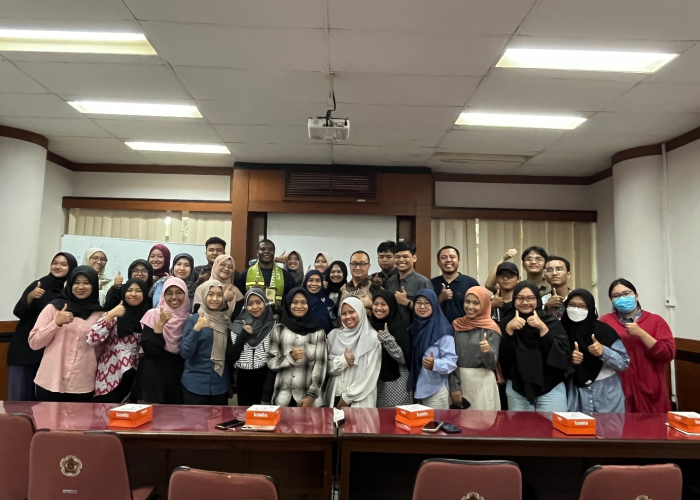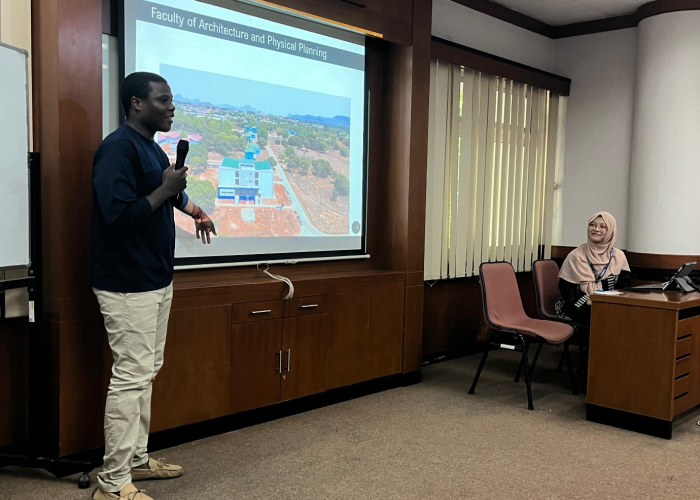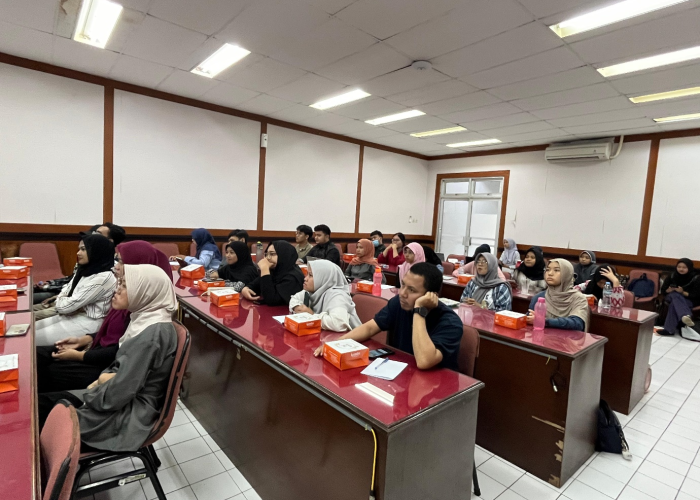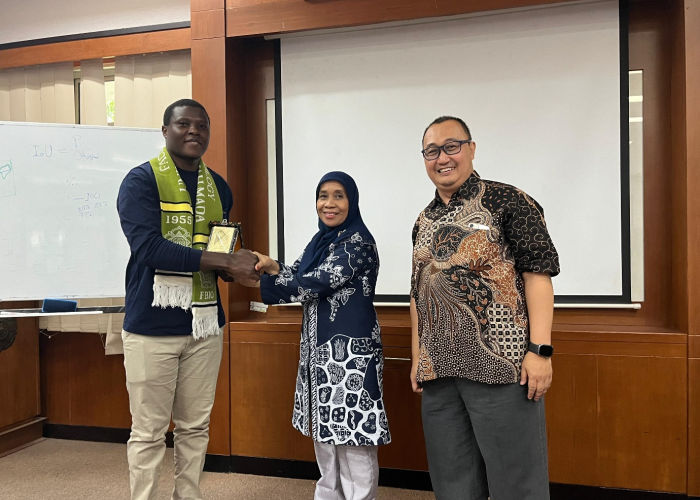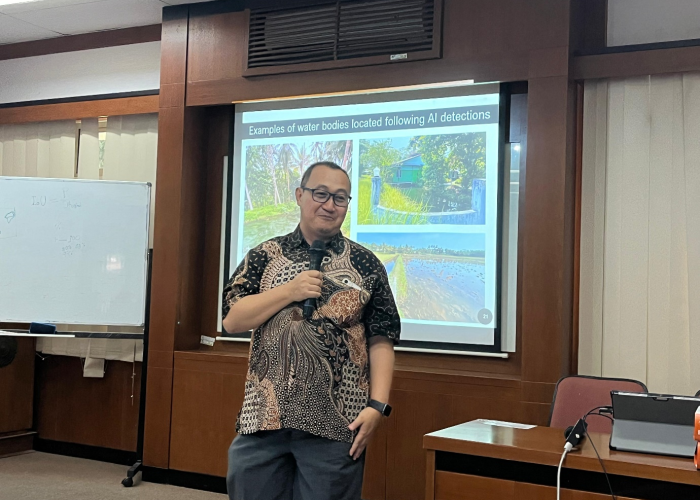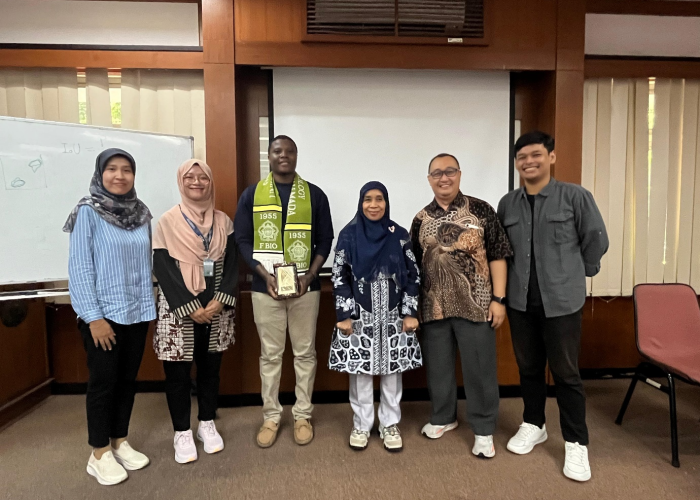On Tuesday, November 26, 2024, the Faculty of Biology, Universitas Gadjah Mada (UGM), hosted a discussion titled “Alternative Mosquito Control Measures for Reducing Malaria Infections” at the Faculty’s Upper Meeting Room. The event, held from 9:00 to 11:00 AM, was attended by more than 30 participants, including lecturers and undergraduate, master’s, and doctoral students. The session featured Micanaldo E. Francisco, a PhD student at Ehime University, Japan, and a lecturer at Lurio University, Mozambique, as the keynote speaker. The discussion was moderated by Atikah Fitria Muharromah, S.Si., M.Eng., a lecturer from the Entomology Laboratory, with Dr. Raden Roro Upiek Ngesti Wibawaning Astuti, DAP&E, B.Sc., M.Biomed., from the Animal Systematics Laboratory as the supervisor.
Micanaldo presented innovative approaches to mosquito control, emphasizing the role of a clean environment and advanced technology. One of his main experiments involved designing houses in Nampula District, Mozambique, with structural modifications such as doors, ventilation, windows, and roof eaves to prevent the entry of Anopheles mosquitoes, the primary malaria vector.
Additionally, Micanaldo elaborated on a drone and AI-based mosquito habitat and breeding site mapping method. This process involved:
- Take aerial images with drone.
- Identifying potential water bodies where mosquitoes breed.
- Validating habitat maps.
- Treating water bodies with larvicides.
This approach offers an efficient solution by reducing the time and cost associated with planning and implementing vector mosquito management programs. The method positively impacts public health by significantly lowering mosquito populations and the risk of malaria infections.
The discussion was interactive, with participants actively engaging through questions, reflecting high enthusiasm for these new technology-based methods. The Faculty of Biology UGM demonstrated its continued commitment to supporting global research relevant to public health and environmental sustainability.
The event concluded with remarks by Dr. Eko Agus Suyono, M.App.Sc., Vice Dean for Research, Community Service, Collaboration, and Alumni of the Faculty of Biology UGM, who emphasized the importance of such discussions in fostering innovative solutions for pressing global challenges.
The approaches presented during this discussion contribute directly to the achievement of several Sustainable Development Goals (SDGs), including SDG 3: Good Health and Well-Being: Strategies to control mosquitoes align with SDG 3.4 (reducing communicable diseases) and SDG 3.8 (ensuring access to essential healthcare services). SDG 6: Clean Water and Sanitation: Mapping mosquito habitats and identifying water bodies support better water resource management, aligning with SDG 6.6 (protecting and restoring water-related ecosystems). SDG 9: Industry, Innovation, and Infrastructure: The use of drones and AI reflects technological innovations supporting public health, corresponding to SDG 9.5 (enhancing scientific research and innovation) and SDG 17: Partnerships for the Goals: Collaboration between UGM, Ehime University, and Lurio University exemplifies global partnerships for sustainable development.
This discussion represents a tangible step forward in addressing global health challenges through innovative and sustainable solutions.

